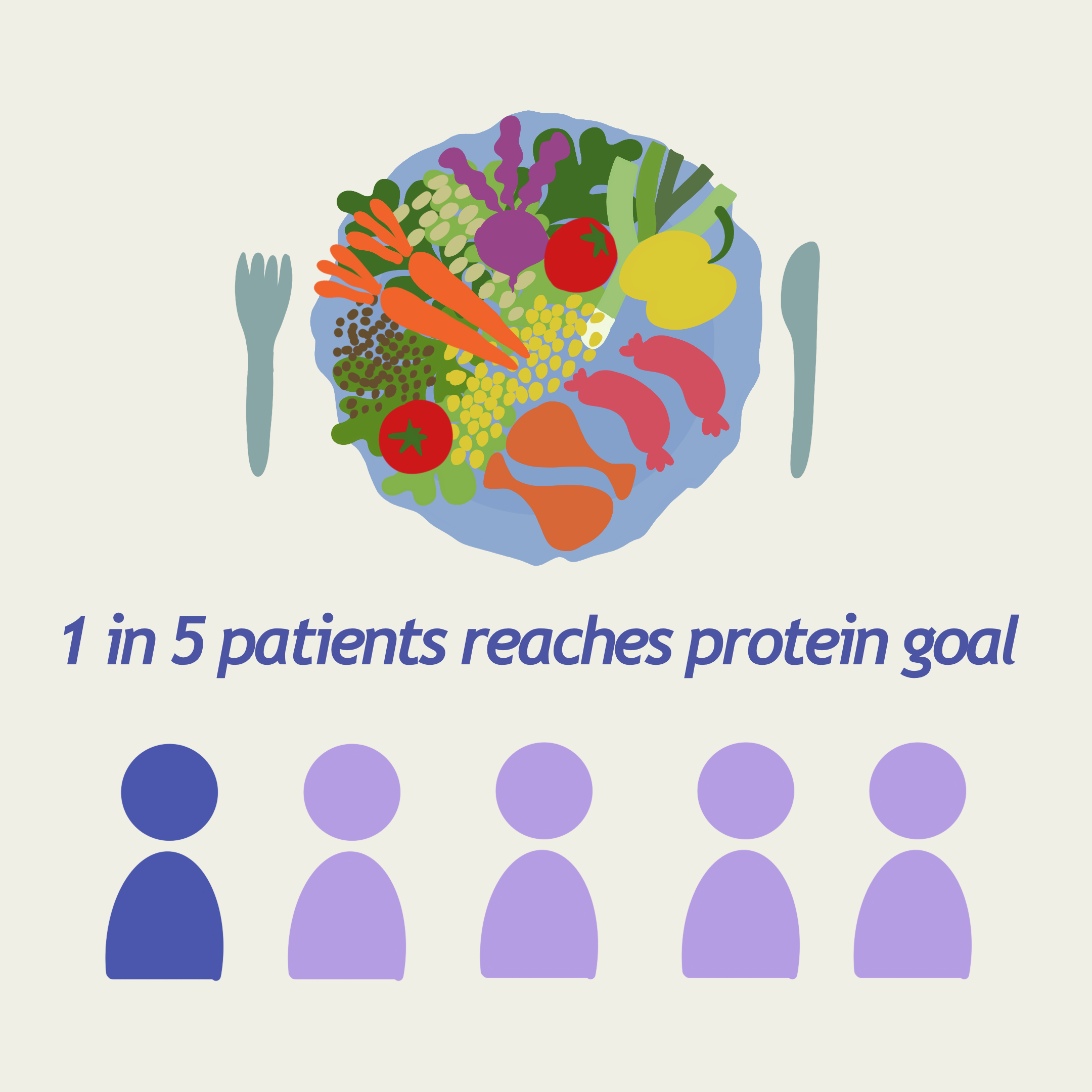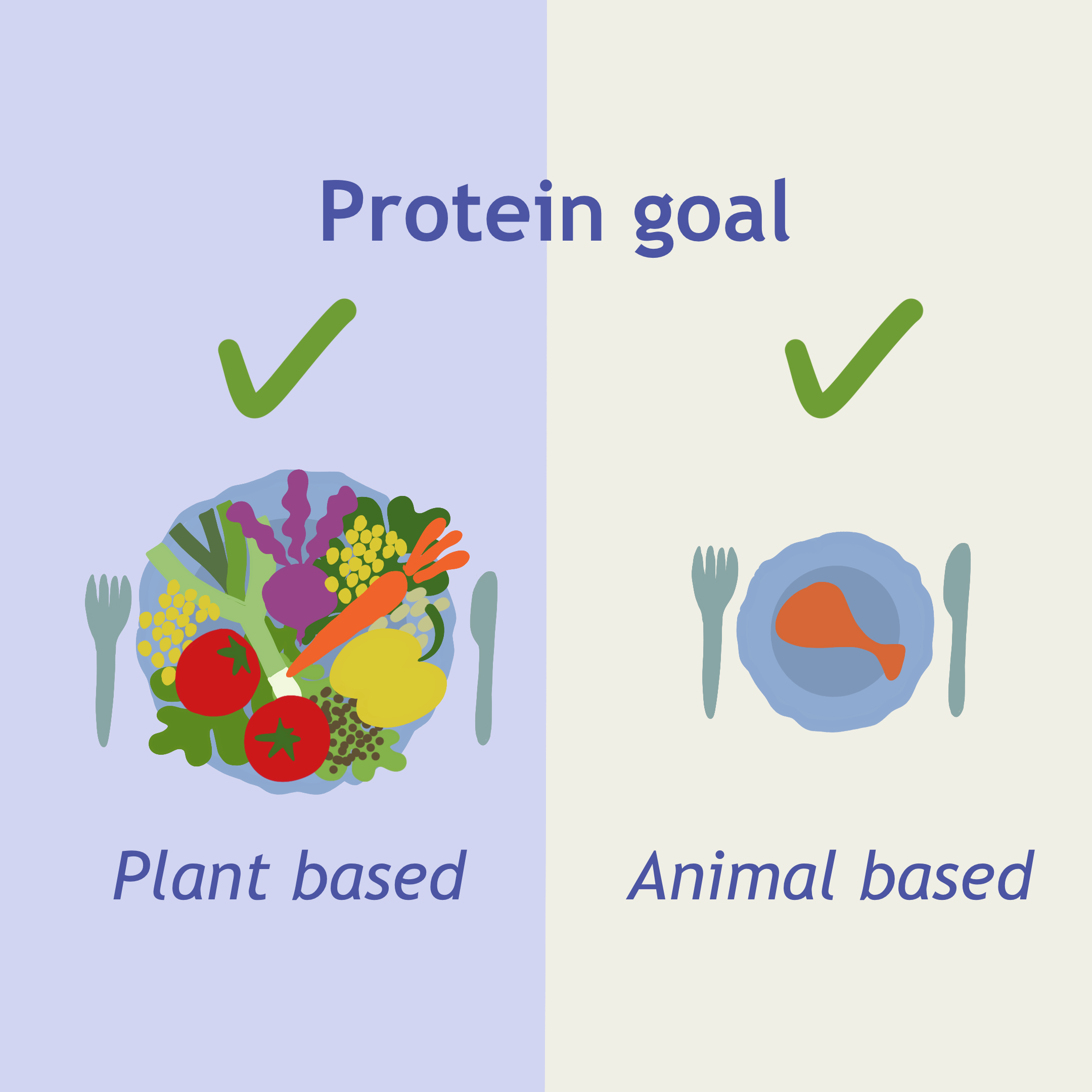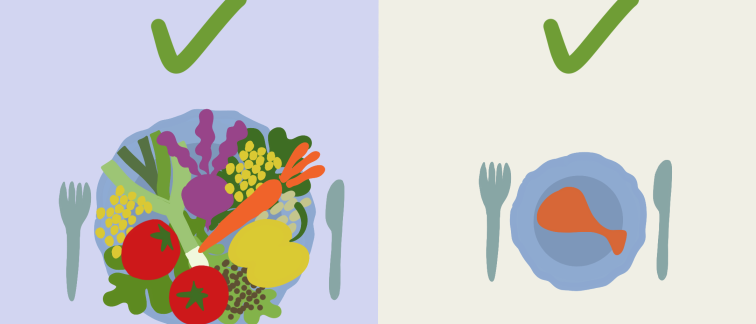Backed with the EAT-Lancet, sustainable development goals, and the Dutch Green Deal Sustainable Healthcare, the Amsterdam UMC is engaging in a protein transition with more plant-based nutrition for their patients and workers, which is proven better for the environment and public health. However, for hospital patients who generally require higher protein intakes and have specific needs to support recovery, the optimal balance between animal- and plant-based protein remains unclear.
Therefore, a group of scientists in the Amsterdam UMC focused on studying protein-intake in hospital diets. PhD student and dietician, Maaike van Bree, says “What’s better for public health is not per se better during acute illness for patient recovery”. These led them to observe 234 patients and record their meals by measuring, among others, protein consumption, caloric intake and essential amino acid profiles.
 Illustration by: Rosalie C. Martens
Illustration by: Rosalie C. Martens
Patients are not reaching their protein goal
The results of their study were sobering: only 1 in 5 patients met the recommended protein intake of 1.2 grams per kilogram of body weight per day. What is more, the ratio between animal and plant protein intake did not reach the targeted 50/50 distribution that Amsterdam UMC aims to achieve. Importantly, patients who consumed a higher proportion of plant-based foods had an even lower total protein intake. These findings underscore the complexity of implementing this protein transition in clinical settings, particularly for patients with elevated nutritional needs. One of the issues Maaike and her colleagues identified as causal to this shortage of protein intake was the difficulty in eating enough food. This was rooted in the difficulties the patients experience in consuming full meals and also due to treatment-related effects.
"Many patients struggle with nausea, swallowing difficulties, or simply lack of appetite." - Maaike van Bree
The reason that patients who follow more plant-based diets have accentuated issues with protein intake is related to the food properties of plant-based meal options. In general, these tend to be less protein dense and often lack key amino acids such as lysine, which is important for tissue repair and thus patient recovery. “If you include more plant-based products, then the portion size will become bigger to compensate for the amount and lower quality of protein in the meal. This also comes with other limitations: You’d need a higher food intake, which is already more difficult for patients and raises concerns about the feasibility. Therefore, careful attention to meal design is essential, particularly for vulnerable groups such as older adults or patients recovering from illness”, Maaike emphasizes.
 Illustration by: Rosalie C. Martens
Illustration by: Rosalie C. Martens
In a quest for patient- and environmentally friendly diets
While more plant-based diets are better for the environment, Maaike’s research shows that hospitals must carefully plan menus to ensure patients get enough high-quality protein and a good amino acid profile. For this purpose, her team developed AminoFit, a tool to help chefs and dietitians to improve meals in the shift towards more plant-based nutrition. This tool is also publicly available for everyone to try out (in Dutch and English).
To solve the issues of a big portion size required to reach protein goals in a more plant-based meal, Maaike’s team studies meal development and fortifying meals with plant protein concentrates. This approach allows you to get the full benefits the different protein-rich plant options provide, as Maaike explains “Some plants, like potato and peas have a good amino acid profile. However, you would have to eat a big portion to get the desired protein amounts”. She also emphasizes the difficulties with taste and patient preferences, as some of the concentrates can have a very particular taste and need to be integrated in the dish in a thoughtful manner. This search for plant-based flavourful dishes with a high protein content and right amino acid profile continues in the Amsterdam UMC with Maaike, her colleagues and a group of chefs.
Authors
Merel Goedkoop
Rosalie C. Martens
Anouk Olthof
Núria Farràs Solé

